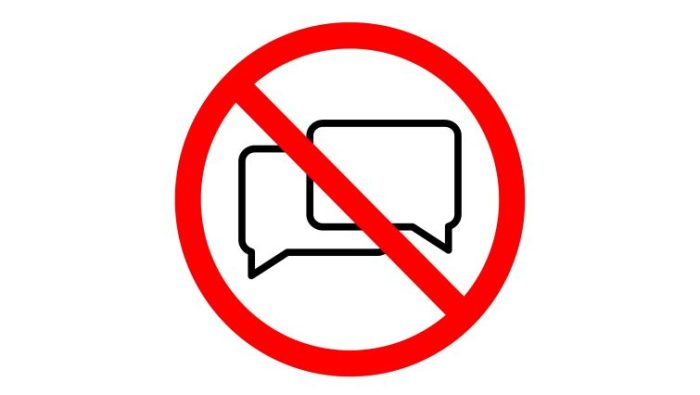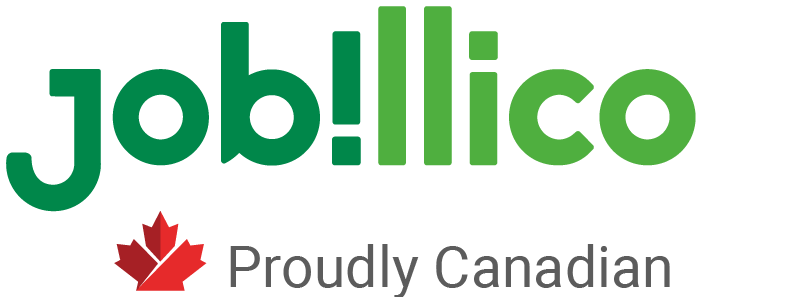8 Things You Should Never Say in a Job Interview
 Publié le 21 April 2021
Publié le 21 April 2021
Your job interview is the best chance for you to make a great impression with a hiring manager. In additional to promoting your skills, abilities and achievements, always remember the 8 things you should never say in a job interview.
Job interviews are obviously important, and job seekers need to take this opportunity seriously. With the sheer number of people that apply to every available job opening, busy hiring managers are always looking for reasons to narrow down the field of candidates, and you can’t afford to give them one. There are several things that you should never say in a job interview because they are immediate red flags to a hiring manager.
By knowing the most common missteps, you will be able to avoid them and focus on promoting what makes you the most qualified candidate for the job.
Spring 2021 has seen the lowest rate of unemployment since the beginning of the deadly COVID-19 pandemic. While the job market will likely remain in flux for the rest of the year as necessary health safety measures are modified to protect our communities, it looks as though there will be new opportunities for job seekers, both virtual and otherwise.
8 Things You Should Never Say In A Job Interview:
- “I don’t know.”
- “I used [technical lingo] in order to [industry buzzwords].”
- “That’s not how we did it at my old job.”
- “My old boss was a jerk.”
- “It’s on my resume.”
- “What the @#*$.”
- “What exactly does your company do?”
- “I don’t have any questions.”
“I don’t know.”
Job interviews are a bit like a test, there is supposed to be an answer for every question. Before your interview, you should always think about your answers to some of the most common interview questions. This does not mean you should try to guess the exact questions and prepare a word-for-response. Rather, think about the demands of the job role and how it relates to your work history. Be prepared to articulate how your experiences make you the right candidate.
A good HR manager is looking to explore the information found on your resume, so it would be unusual for them to ask something completely unexpected. What you should not do is have no response to something they ask, especially if it was a topic of discussion you could have prepared for. A lack of preparation will cause 89% of hiring managers to doubt your suitability for a job, so it definitely pays to be prepared.
“I used [technical lingo] in order to [industry buzzwords].”
Every industry has its own techniques and processes, and it’s important to be familiar with them. The hiring manager is very likely looking for people with specific knowledge, especially in tech-heavy industries. While you should make it clear that you are familiar with standard industry procedure, trying to force a bunch of jargon and buzzwords into your job interview is not a good idea.
Instead of making you sound informed and competent, a hiring manager could see it as an attempt to bluff your way through a job interview while trying to make up for a lack of industry knowledge and experience.
“That’s not how we did it at my old job.”
Each workplace is different, with certain procedures they expect to be followed. Hiring managers are looking for employees that can quickly adapt into the workplace, and work to move the entire company in a successful direction. You should not immediately compare the new environment to your old job, because to the hiring manager and your new bosses it simply doesn’t matter how you did things with a different company.
It is expected that you will have learned positive work skills and techniques over your career that you will bring with you into a new job, but they are not looking for you to replicate a previous work experience. During your job interview, focus on how eager you will be to bring your skills into a new work environment.
“My old boss was a jerk.”
A job interview is not the place to trash your previous manager or workplace, and doing so may cost you any opportunity to get hired. With 88% of hiring managers holding a negative view of applicants who badmouth former bosses, you are only seriously harming your chances of getting hired. Not every workplace is run smoothly and free of personality conflicts, and such conflicts are a sign it’s time to find new opportunities, but there are ways to discuss this without coming off as bitter or vindictive.
If there were problems at a previous workplace, a hiring manager wants to hear what you did to try and address them, not how you pass the blame onto your boss. It is much better to present yourself as an employee who will bring solutions into the workplace, and not one who will bear grudges.
“It’s on my resume.”
If a hiring manager asks about a specific skill, experience or reference that you have included on your resume, do not simply refer them back to your application. By bringing it up, it means that they want you to elaborate and go deeper on this subject. If they mention a specific job, go beyond the list of duties and responsibilities you provided and give a wider context to your role.
The average resume should not be longer than two pages, so it is obviously a much-abbreviated version of your work history. Nevertheless, you should still ensure that it includes your successes and achievements in each job role. This is also a good opportunity to discuss and expand on the soft skills and intangibles that aren’t as obvious on a resume, but are still part of what will make you a valuable employee.
“What the @#*$.”
An unavoidable component of a successful job interview is projecting a professional image. For this reason, it would be best to avoid swearing during your job interview. While the interview process has evolved and now can be quite casual, you must remember that every workplace will expect a certain level of professional decorum, even virtual ones.
One survey found that 41% of workers considered swearing at work to be unprofessional, and you can’t afford to have that many coworkers, managers and supervisors view you in that light. Your words and attitude matter, because if hired you will be a representative of a business and they may not want their image associated with language they could perceive as vulgar or rude. Keep it professional and G-rated when meeting with a hiring manager, and it will help you maintain a professional image.
“What exactly does your company do?”
You should always research the company before applying for an available job. Do your research especially before arriving for your job interview, as 47% of interviewers would not hire someone who displays little knowledge of the company. Doing no research indicates that you did not take the application process seriously, and really have no idea if you would be suitable for the job.
You should only apply for jobs that line up with your work skills and experiences, and at companies that have created a positive company culture, not just blindly send off resumes. Arriving at a job interview without knowing basic information about a company or your potential role means that you don’t know how you would fit in and contribute to the work environment. This will likely make a hiring manager see your job interview as a waste of time.
“I don’t have any questions.”
One of the traits most highly praised by hiring managers is curiosity. You should always come to a job interview with prepared questions for the hiring manager. If you don’t have any follow-up questions at the end of an interview, a hiring manager may interpret it as a lack of interest in the job. A job description – no matter how detailed – can’t tell you everything about the daily reality of life in this workplace. This is your opportunity to ask important questions about salary, benefits, work expectations, company culture and anything else that may influence your decision.
A job interview is the best opportunity for a hiring manager to learn about that skills and strengths that will make you the perfect person for the job. With so many applicants and so little time, what you say to a hiring manager truly does matter. Take the time to study and prepare, this way you will be able to avoid accidentally blurting out one of the 8 things you should never say in a job interview.







